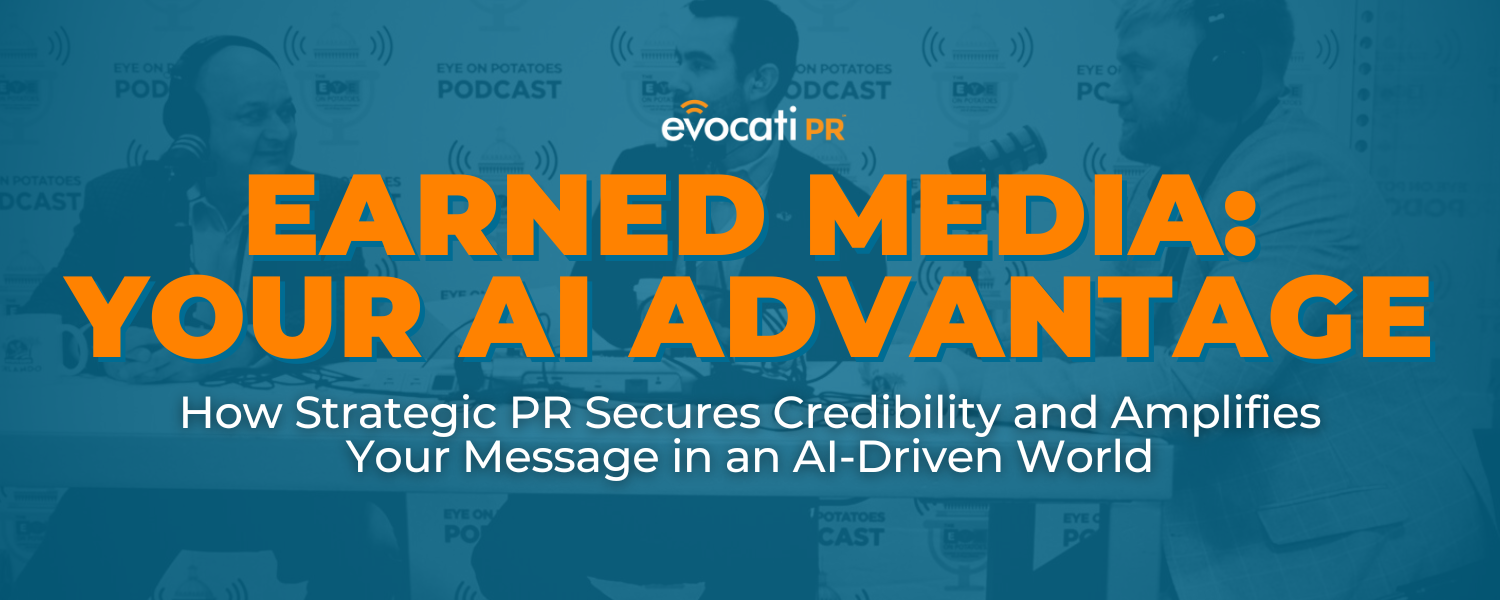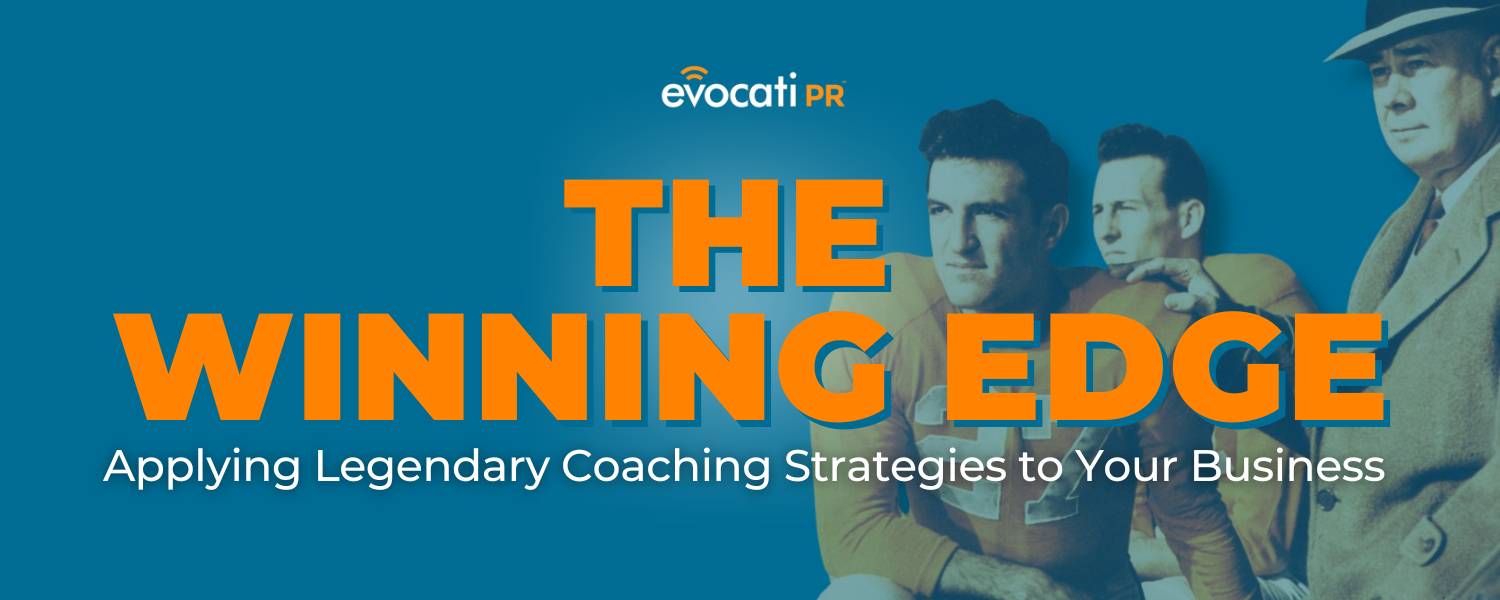Peer Power: The One Thing Every Veteran Entrepreneur Needs to Be Successful
Current Landscape
Veteran-owned businesses like Evocati PR contribute $1 trillion in annual sales to the U.S. economy. According to Gusto—Evocati PR's human resources and payroll platform—veterans owned 305,000 businesses that collectively employed 3.3 million workers, contributing $180 million in annual wages to those workers in 2021. In fact, one-in-four service members surveyed by IVMF who transition into civilian life started their own business within four years. But these compelling data points do not portend automatic success for you if you're debating starting a business.
READ MORE: 2022 National Survey of Military-Affiliated Entrepreneurs: Veteran Entrepreneurial Ecosystem — IVMF
Why We Fail
You're more likely to fail thanks to the barriers you'll face. According to Mission Roll Call those barriers may be financial, like access to financial capital, human capital, regulations, business knowledge, and marketing. These impediments doom many veteran startups and may explain why failure happens. Or perhaps this already sounds familiar?
There's no magic bullet that will fail-proof your business, but there is one way to increase its chances of success, a way that benefits your business and will exponentially grow your network. It's called peer support.
Peer-to-Peer Power
GWBI Stand-To alumni pose for a selfie. (Source: Evocati PR)
Peer support comes in a variety of ways, but there's only one way veteran entrepreneurs should think about this: find a group of veteran entrepreneurs and join it. According to Startups Magazine:
‘Peer-to-peer support’ networks encourage like-minded business leaders to share brilliant ideas and best practices to learn from one another. Often, they bring together senior leaders who share similar job roles but work in different sectors, and this encourages dynamic thinking and provides fresh perspectives on ideas and challenges.
Joining sounds simple in theory but is difficult to execute due to the sheer volume of support programs for veteran entrepreneurs. The truth is you don't have to build your business alone. You can find peer support like I did in building Evocati PR. I talked about my journey as a veteran entrepreneur, including accessing peer support, on the Scuttlebutt podcast with Brock Briggs. There are many ways peer support can help you.
How it Helps
Think of peer support as 10x-ing your knowledge and capabilities as a founder. You'll gain immediate access to experts and problem solvers who've already overcome the challenges you're facing and can provide accountability. Peer support is different from mentorship in its intent—you are seeking partners to support your growth journey, not a person to serve as a sounding board. Peer support replicates what we had in the military—in our fire teams, squads, etc. It provides a group of battle buddies to support your entrepreneurial journey. You need to replicate that to succeed as a veteran entrepreneur.
“Peer support replicates what we had in the military—in our fire teams, squads, etc. It provides a group of battle buddies to support your entrepreneurial journey. You need to replicate that to succeed as a veteran entrepreneur.”
I participated in peer support groups through Bunker Labs, the George W. Bush Institute, and the Stanford Graduate School of Business. Each opportunity led to greater personal growth as a business leader, expanded my network, and informed business decision-making.
READ MORE: What I Gained Participating in Bunker Labs and the Value of Business Incubators — Evocati PR
Where to Find Support
Members of IVMF Bunker Lab’s Veterans in Residence Cohort showcasing their businesses. (Source: Evocati PR)
If you're interested in learning more and finding a peer support group to join, I've identified the ones I've found (or used) and listed them below along with a description of each. I've identified groups that provide peer support and exclude programs that are curriculum-focused or self-directed online learning.
This is by no means exhaustive. If you're reading this and know of a peer support group for veteran entrepreneurs, shoot us a note requesting it be added.
George W. Bush Institute | Stand-To Veteran Leadership Program: A five-month program that targets rising leaders (service members, veterans, and civilians) from a wide range of sectors who are working to improve outcomes for veterans and military families through professional and/or community. engagement. Learn more.
Bunker Labs IVMF | Veterans in Residence: A six-month startup incubator and leadership program that provides veteran and military family member entrepreneurs the community, business support, and workspace to help launch and grow their businesses. Learn more.
Bunker Labs IVMF | CEO Circle: A monthly peer accountability group for growth-stage companies looking to scale. Over the course of nine virtual huddles and four in-person fly-in forum events, CEOs and executives can ask critical questions impacting their businesses today. Learn more.
Stanford Graduate School of Business | Ignite Post-9/11 Veterans: An intensive, four-week program that’s academically rigorous, hands-on, and collaborative. Participants engage directly with the same renowned faculty who teach in the Stanford MBA program and participate in real-time lectures, case evaluations, Q&A sessions, small group discussions, workshops, panels, and team venture projects. Learn more.
Veterans Future Lab | Apex: An incubator dedicated to ventures led by veterans and military spouses. This 9-month, no-cost program provides mentorship, support, and resources needed to start and grow high-impact companies. Learn more.
Stagen | The Integral Leadership Program (ILP): A comprehensive 52-week program designed to transform executives and their organizations through a blend of in-person workshops, executive coaching, and peer learning. ILP aims to enhance leadership skills, focus, communication, and team performance. Participants are grouped into 20-person cohorts for collaborative learning and support. The program emphasizes practical application and behavioral change, supported by an online portal for continuous access to course materials and progress tracking. Learn more here.
Crain's Academy | Executive Education: Offers a transformative executive education program designed for high-performing professionals across various industries and sectors. Participants engage with inspiring leaders, learn from experienced facilitators, and develop lasting professional relationships. The program emphasizes stepping outside the classroom to gain unique insights and broaden perspectives, ultimately enhancing both personal and professional growth. Learn more here.
Veteran Accelerator | Founder Institute: Offers a highly structured approach to help startups focus on key milestones, combining growth sprints and feedback from a global network of advisors. The initial phase is designed to help idea and pre-seed founders reach investment milestones. Graduates get free access to ongoing advisory programs and opportunities to connect with investors. Learn more here.
Veteran Entrepreneur Program | PenFed Foundation: Offers veteran founders an, “experience that includes group collaboration and individualized mentorship that better prepares you to navigate the complexities of growing a startup. From the elusive world of accessing capital to practical, hands-on coaching, the Veteran Entrepreneur Program has created an initiative tailored to the needs of founders.” Learn more here.
Other Options: Review what's available in your state or city like local Chambers of Commerce for peer support. For example, in my home of Virginia, we have the Northern Virginia Chamber of Commerce Veterans & Military Business Council. Another option is to go direct—announce your need for peer support on X, formally known as Twitter, or LinkedIn, and gather like-minded veteran entrepreneurs to create your own peer group.
You Got This
If you've already decided to join a group, then you're halfway to success. If you're on the fence or would like to talk to someone who benefited from peer support, visit this page to set up a discovery call with me. I'm always delighted to meet fellow veteran entrepreneurs.







